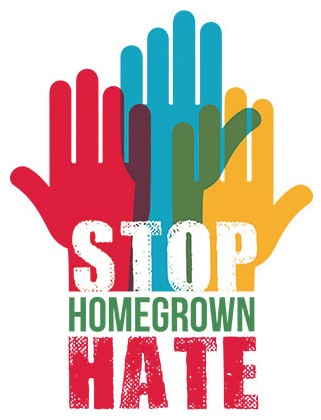When Ronald S. Sullivan starts teaching his class at Harvard Law School each semester, he asks his students how many of them have been spread eagle over a police car. Every year, it’s the same answer: Two or three black students and maybe one other person of color raises their hand.
“These are the kids who made it to Harvard Law at the top of their class,” Sullivan said. “The common denominator is color.”
Many of the high-profile killings of black men at the hands of police, including Eric Garner, Alton Sterling and Philando Castile, have involved minor infractions like driving with a broken taillight or selling loose cigarettes. Most of these men have also been poor or working class.
But high-earning professional black men say, they too, face challenges when dealing with police — though sometimes the slights are less violent and more subtle. Wealth “helps, but its not a complete insulator,” Sullivan said. “Race is still seen as a proxy for criminality.”
Senator Tim Scott of South Carolina, one of three black Republicans in Congress, revealed Wednesday that he had been pulled over seven times over the course of one year. “The vast majority of the time, I was pulled over for nothing more than driving a new car in the wrong neighborhood or some other reason just as trivial,” he said in a speech on the Senate floor.
Dr. Brian H. Williams, a black trauma surgeon at Parkland Memorial Hospital, who treated the police officers shot in Dallas last week, told CNN that while he has tremendous respect for police, he also fears them at the same time.
“Clearly when I’m at work dressed in my white coat, the reactions I get from the individuals and officers I deal with on a daily basis is much different than what I would get outside the hospital in regular clothes,” he said. “And my fear and some mild inherent distrust of law enforcement that goes back to my own personal experiences over my entire life, as well as hearing the stories from friends and family that look like me that have had similar experiences.”
For Eddie Hailes, general counsel at The Advancement Project, a civil rights group, those types of interactions with police produce anxiety and shame. “I have achieved a certain level of academic achievement, but I want to be respected… If I have to die, I’m going to nobly die,” Hailes said.
And the psychological stress can take a toll. “It’s an ongoing daily battle among professional black men that white men don’t have to deal with.”
Perhaps the best known example of that battle was when Harvard professor Henry Louis Gates, Jr. was arrested and charged with disorderly conduct while trying to get into his Cambridge, Massachusetts, home in 2009. The charges were dropped several days later.
President Obama tried to quell the growing national debate around racial profiling that resulted from the arrest by inviting Gates and the officer who arrested him to have a beer at the White House. But that beer summit did little to erase the fact that blacks continue to be treated differently than whites by police.
Data has repeatedly shown that blacks are more likely than whites to be pulled over for minor traffic violations, stopped and frisked or incarcerated. According to a database that tracks police shootings by The Washington Post, blacks are 2.5 times as likely as whites to be shot and killed by police.
While there is very little data on the intersection of wealth and incarceration, one study from Duke University and The New School for Social Research showed that blacks with a higher net worth than whites were almost always more likely to be incarcerated. Only those blacks that had a net worth of more than $68,700 were slightly less likely than whites of the same net worth to be incarcerated.
Todd Cox, the director of criminal justice policy at the Center for American Progress, a progressive think tank, said that in more affluent or white environments, law enforcement tends to be more suspicious of blacks.
Cox recalled being a student at the University of Pennsylvania and walking home and being in a more affluent part of the city when he was stopped by police who were “dubious” about why he was in that neighborhood. He showed his ID, but they continued to press him about his whereabouts before letting him go. “I was just hoping it would end,” he said. At the time, Cox recalled his parents giving him “the talk” about how to behave when dealing with police officers. Things like “be respectful, do exactly what they say,” he said.
Sullivan says being forced to have “the talk” is infuriating. “The talk mandates that we tell our young men to treat themselves as second-class citizens.”
Wealthier blacks may have more resources than poor blacks when dealing with police harassment after the fact, including knowing how to file complaints and having access to lawyers or political allies, Sullivan said. “Citizens in poor neighborhoods simply don’t have a political voice and I think law enforcement is acutely aware of that,” he said.
Despite his success, however, Sullivan says he still braces himself during an encounter with police.
“No matter how much money I have in my pocket, if I’m stopped by police late at night in my car I am afraid,” Sullivan said. “What they see first and foremost is my black skin. And I know that and behave accordingly.”
Source: http://money.cnn.com/2016/07/14/news/economy/wealthy-blacks-racial-profiling/
